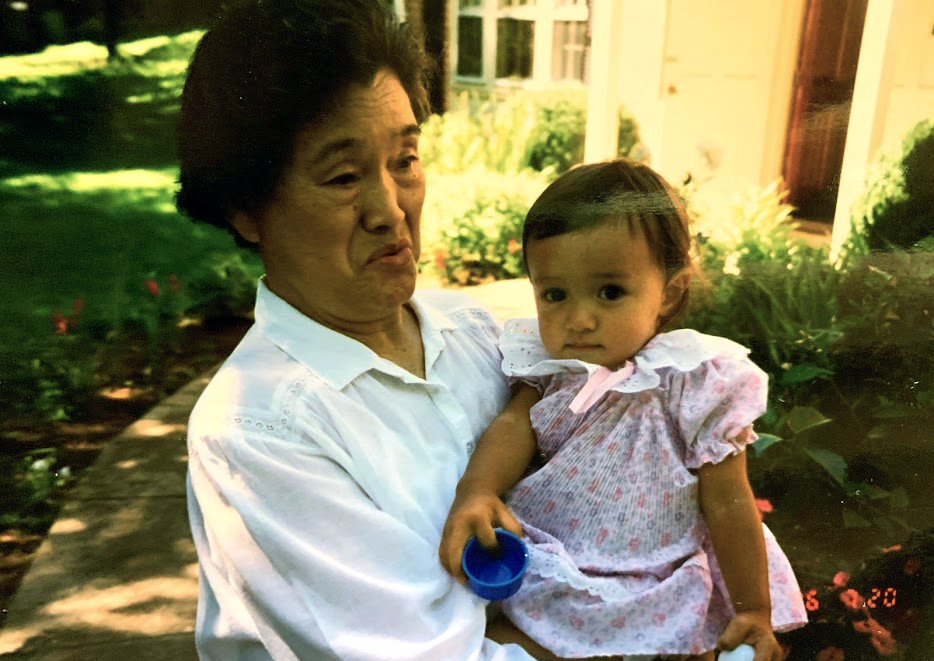Who Doesn’t Cross The Street?
By LAURA JEU

Rumors exist amongst my Asian friends. These rumors claim that our intersection is not now. Ten days after an attack that specifically targeted Asian women, I sat with a Korean friend and we talked about how America’s sudden focus on our race generated a feeling of guilt for us.
After a year of racism against people who look like my grandmother, I asked if I deserved the sudden focus, because my experience has been relatively safe, and I pass for white. In a community where I avoid wearing traditional Korean clothing, I ask if my space is too big.
“What do you think about the recent focus on AAPI individuals?” He asked, “How does it make you feel?”
I hesitated, feeling the privilege of my race. “No one deserves to die, especially not because of their race.” I couldn’t find the next words, because my experience cried tears of a different tone, a tone of benefits and micro-aggressions I rarely acknowledge, generating survivor’s guilt for someone who didn’t know survival was at stake.
In elementary school, I showed my friends elaborately carved Korean bowls and ornate toy shoes my grandmother imported from Seoul. My friend group passed them around with reverence, as if they were ancient artifacts while I knew they were often thrown between bunk beds and used as cat bowls. These white friends routinely complimented my heritage, so I didn’t understand why my heart cried when they jokingly made Asian eyes at a poolside picnic. These trusted humans with their perfectly hooded eyelids contorted their faces to laugh at the difference between a Korean eye, a Japanese eye, and a Chinese eye. My brown biracial eyes turned to glass and I saw the world, that scene, and my friends differently.
In high school, I dove into academics, failing to see the pressure from my last name, my Asian teachers, myself. I received a graded test with a mark of 92% and my Korean teacher, appalled, said, “Oh that is so bad.” With increasing concern, my white classmates craned to look at her; many of them held similar marks for which she had praised them. Familial pressure necessitated a devotion to grades over mental health, over physical health, over self-ambition. It was racism, but it also held me to a higher standard, so how could I despise my GPA, my college admissions, and my diploma?
Ten days after an attack that specifically targeted Asian American women, I mourned the lives lost, the atrocities of the past year, but could not attach this sorrow to my identity as an Asian American woman. They have always been split. I deny my heritage because my abilities must supersede the connotations of pickled cabbage and my slanted eyes. In my soul, I retain the rigid stoicism of unnecessary perseverance, overriding the lament in the throats of Asian migrants who crossed the mightiest ocean merely to receive a slur and shove on the street they proudly reside.
The American experience is not one of a dream, but of a battle royale nightmare amongst all minority people groups. These groups differ in many ways, but they share the weight of the oppressive effects of white supremacy. When I’m walking with my Black friends and we see a group of white men clad in insignias demarcating their allegiances, we cross the street. When I’m walking with my female friends and we encounter a crowd of white men who make jokes that sound like words of Brock Turner, we cross the street. When I’m walking with my Asian friends and we face white men making racist jokes permissible to the previous executive branch, we cross the street. When I’m walking with my Hispanic friends and we face a crowd of white men who bear shirts supporting mass deportation, we cross the street.
When I walk with my white male friends, even if they are allies, they sometimes struggle to understand my mace, my key carried like a weapon, my preference for sneakers over sandals, my belted jeans beneath a jacket tightly snapped even in April’s midday humidity. We almost never cross the street.
In America, the ability to pass for white is a privilege. The ability to deny my heritage, my grandmother, my inherited love of bulgogi wrapped in seaweed with a laughably small amount of rice is a privilege. My grandmother, a Korean migrant who once lived in a unified country later shredded by war and the lingering effects of imperialism, never passed for white. Despite their best efforts to assimilate, my ancestors’ skin tone remained steadfastly Korean.
Today, I wonder at my eyes and my skin and my hair. These threads that unify me with the ununified Korean peninsula are noticed in America, but only by men who would make me cross the street. I was nineteen when a white man recognized my race by the slant in my eyes, leering towards me and asking coarsely, “You got a little Korean in you?” I was twenty-two when a white man married to a Korean woman (which absolved him of any racism) demanded, “How Korean are you?” White men like this ask these questions before asking my name. White men like this cultivate personalities full of words like “curiosity” instead of “fetishization.” White men like this necessitate the crossing of the street.
In racist America, the passive acceptance of white supremacy asks people to cross the street. People who carry the generational burdens must go around white supremacy, make their own journeys longer to protect themselves. The weary migrants, the discriminated against minorities, the mistreated women, and the displaced indigenous people who already traversed two and a half centuries of white supremacy still cross the street.
